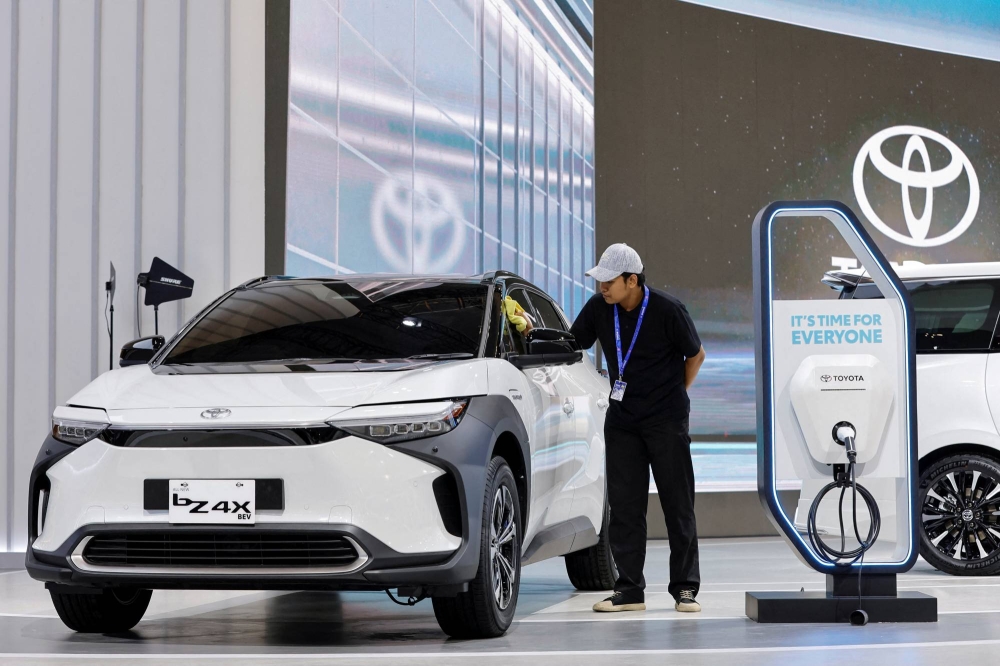Government Subsidies for EV Charging Stations- Updated 2024
It can be challenging to find information about your country’s national policies for EV charging stations. To simplify the process, we’ve compiled a list of the most important electric vehicle charging policies from around the world.
Europe
Denmark
EV sales in Denmark dropped after the government began to phase out EV incentives in 2015. By 2017, electric vehicle sales accounted for only 0.4% of all vehicle sales in the country. However, things have improved since 2019 due to a new climate law and the elimination of EV tax rises. As of now, the electric vehicle market share in Denmark is around 4%.
Charging Incentives:
- Commercial charging is exempt from taxation, allowing businesses that provide EV charging to be eligible for an electricity tax rebate of roughly 1 DKK (€0.13) per kilowatt-hour.
Belgium
Belgium’s electric vehicle market has developed rapidly since 2014, currently holding a market share of around 10%. This number is expected to rise significantly due to new policies, including polluting vehicle bans and attractive EV taxation laws.
Charging Incentives:
- Companies operating under the corporation tax system can get a 13.5% deduction on chargeable infrastructure investments, saving up to €14,375.
- Individual income tax deductions are available for up to 75% of the cost of charging.
- In Brussels, companies that install charging devices can avoid paying a tax of up to €75 on office parking spaces.
Finland
Finland has lagged behind its neighbors Sweden and Norway in adopting electric vehicles due to limited incentives and a preference for biofuels. However, EV sales have increased in recent years as more incentives have been introduced.
Charging Incentives:
- The Ministry of Employment and Economy extended its EV charging subsidy program in 2016, allocating €4.8 million to develop public charging infrastructure. This initiative offers financial assistance for businesses investing in charging infrastructure and leasing electric vehicles as company cars.
- The Finnish Housing Finance and Development Centre set aside €1.5 million in 2017 for subsidies to housing cooperatives, condos, and similar organizations that install charging stations for their tenants, covering up to 35% of costs.
France

France is committed to electrification, with President Emmanuel Macron unveiling an €8 billion plan to save the French car sector. This plan includes goals such as having over 100,000 public charging sites by next year and producing 1 million electric vehicles yearly by 2025.
Charging Incentives:
- A €300 tax credit is available for the purchase and installation of an EV charger at your primary residence.
- Businesses can save up to 40% on the purchase and installation of electric vehicle charging stations.
- Municipalities can claim up to 40% of the cost of purchasing and installing charge points, with a maximum of €2,160.
Germany
Germany, being one of the largest automotive markets in Europe, has put significant efforts into promoting electric vehicles and developing charging infrastructure.
Charging Incentives:
- The government provides grants covering up to 80% of the costs for private and semi-public charging stations.
- There are tax incentives for electric vehicles, including exemptions from the annual vehicle tax for up to ten years.
- Companies can benefit from subsidies for workplace charging stations.
Netherlands
The Netherlands is known for its proactive stance on promoting electric mobility, with an extensive network of charging stations.
Charging Incentives:
- Municipalities offer subsidies for the installation of public charging stations.
- The Dutch government provides tax benefits for electric vehicles, including lower registration taxes and exemptions from road taxes.
- Businesses can receive a tax reduction of up to 36% on the investment in EV charging infrastructure.
Asia
China
China is the largest market for electric vehicles, supported by strong government policies and incentives to promote EV adoption.
Charging Incentives:
- The government provides substantial subsidies for the installation of charging infrastructure.
- There are tax incentives for electric vehicle purchases, including exemptions from purchase taxes.
- Public charging stations are being rapidly expanded across the country, supported by both national and local governments.
Japan
Japan has been actively promoting electric vehicles and hydrogen fuel cell vehicles as part of its strategy to reduce carbon emissions.
Charging Incentives:
- The government offers subsidies for the installation of EV chargers at homes and businesses.
- There are tax incentives for electric vehicle purchases, including reductions in acquisition and ownership taxes.
- Financial support is available for municipalities to develop public charging infrastructure.
South Korea
South Korea has ambitious plans to increase the number of electric vehicles and expand the charging network significantly.
Charging Incentives:
- The government provides subsidies for the installation of home and workplace charging stations.
- Tax incentives are available for electric vehicle purchases, including reductions in acquisition and registration taxes.
- Investments are being made in fast-charging infrastructure to cover major highways and urban areas.
North America
The United States
The U.S. is heavily investing in new EV chargers, with hundreds of thousands being built nationwide. President Joe Biden has proposed $174 billion in increased expenditures to encourage the use of electric vehicles and charging stations, including $15 billion to support a nationwide charging network of 500,000 stations by 2030.
Charging Incentives:
- Individuals can receive a 30% discount on a vehicle charging station plus installation charges (up to $1,000) through a federal tax credit.
- For the purchase of a new qualifying EV, a tax credit ranging from $2,500 to $7,500 is available, depending on the vehicle’s specifications.
- For the purchase of a new eligible two-wheeled plug-in electric drive vehicle, a credit of up to $2,500 is available.
- The government is funding fast charging stations every 50 kilometers on major roadways.
Canada

Canada is working to promote electric vehicle adoption and expand its EV charging network through various federal and provincial initiatives.
Charging Incentives:
- The federal government offers rebates for the purchase of home charging stations.
- Provincial incentives vary, with some provinces offering additional rebates and tax credits for EV purchases and charging infrastructure.
- Investments are being made to develop a coast-to-coast network of fast chargers along the Trans-Canada Highway.
United Kingdom
The UK has a comprehensive strategy for electrification with the Office for Zero Emission Vehicles (OZEV) and the Road to Zero approach. The aim is to eliminate the sale of fossil-fueled vehicles by 2040.
Charging Incentives:
- The Electric Vehicle Home Charge Scheme (OZEV) offers a grant of up to 75% (capped at £350, including VAT) of the total purchase and installation expenses of one EV charger for private residences.
- Businesses can cover up to 75% of purchase and installation costs, up to £350 per socket, for up to 40 sockets across all sites.
- The On-Street Residential Charge Point Scheme (ORCS) helps local governments with the expense of installing on-street charging stations.
- Companies constructing charging infrastructure can take advantage of a 100% first-year allowance (FYA) for expenses on EV charging equipment.
Conclusion
When purchasing an electric vehicle or an EV charger, consult this information to take full advantage of available benefits. Our comprehensive guide ensures you won’t miss out on any incentives, making your research process efficient and straightforward.
Contact us here at National Battery Supply today to find the best solution for your needs.



